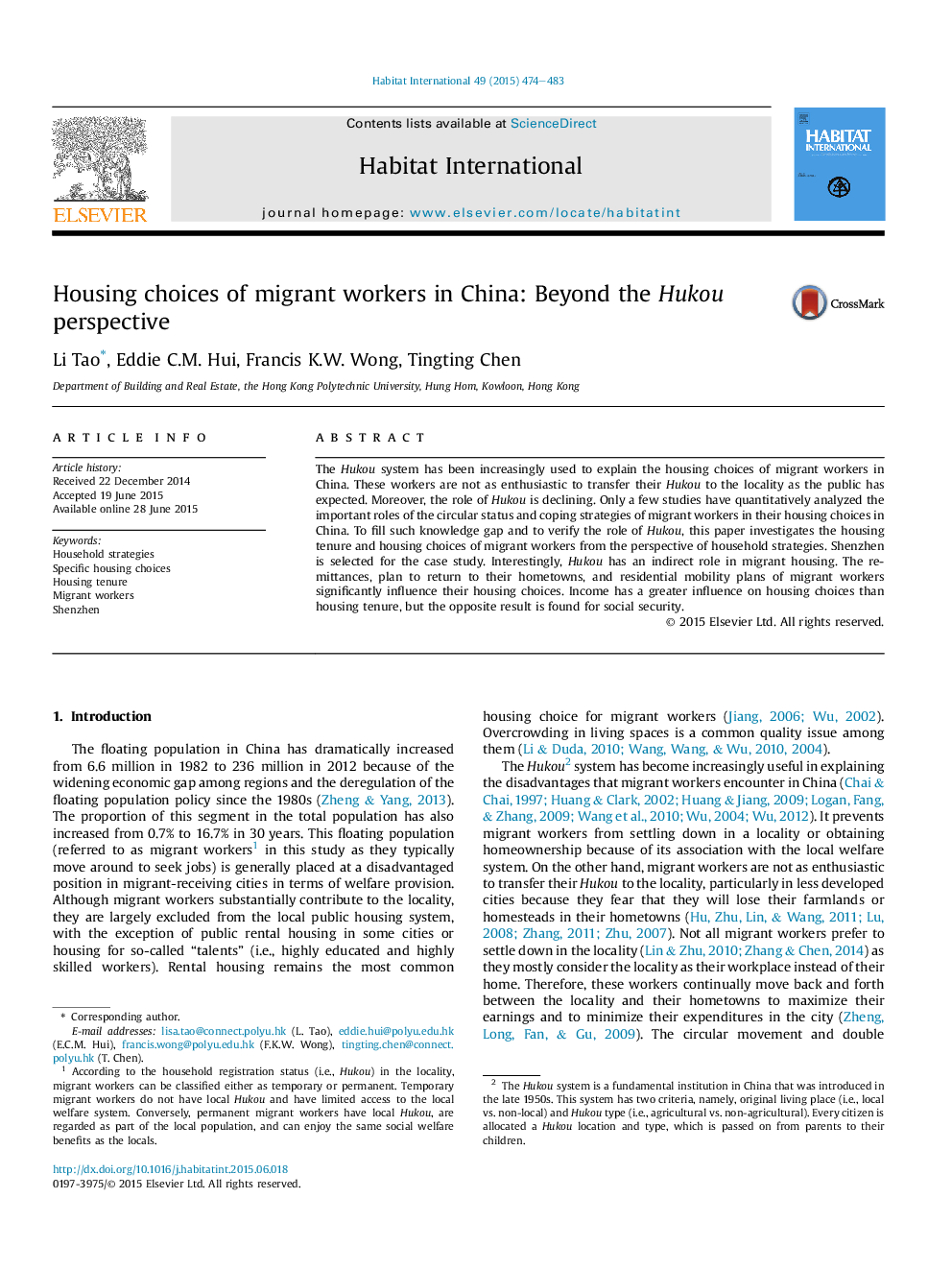| Article ID | Journal | Published Year | Pages | File Type |
|---|---|---|---|---|
| 7456310 | Habitat International | 2015 | 10 Pages |
Abstract
The Hukou system has been increasingly used to explain the housing choices of migrant workers in China. These workers are not as enthusiastic to transfer their Hukou to the locality as the public has expected. Moreover, the role of Hukou is declining. Only a few studies have quantitatively analyzed the important roles of the circular status and coping strategies of migrant workers in their housing choices in China. To fill such knowledge gap and to verify the role of Hukou, this paper investigates the housing tenure and housing choices of migrant workers from the perspective of household strategies. Shenzhen is selected for the case study. Interestingly, Hukou has an indirect role in migrant housing. The remittances, plan to return to their hometowns, and residential mobility plans of migrant workers significantly influence their housing choices. Income has a greater influence on housing choices than housing tenure, but the opposite result is found for social security.
Related Topics
Social Sciences and Humanities
Social Sciences
Development
Authors
Li Tao, Eddie C.M. Hui, Francis K.W. Wong, Tingting Chen,
